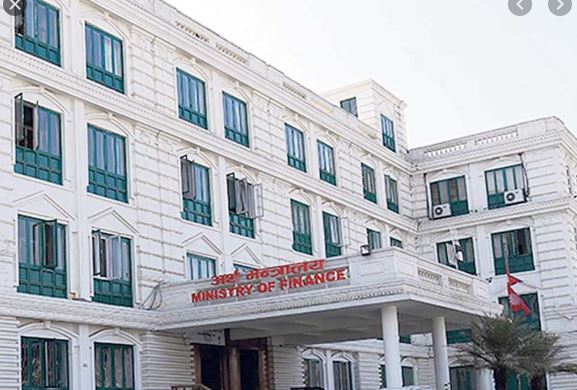KATHMANDU: Ministry of Finance has announced 21 projects selected for inclusion in the Global Climate Fund (GCF) country project pipeline, a crucial step in securing international climate financing. However, concerns have arisen among Nepali officials following the United States’ withdrawal from the Paris Agreement, a key international framework for climate action.
Among the selected projects, four—two from the Ministry of Water Supply and Sanitation and two from the Town Development Fund (TDF)—were included on the condition that they are resubmitted.
The announcement of Nepal’s selected projects came just a week after the United States formally withdrew from the Paris Agreement on January 21, 2025.
This move, initiated by President Donald Trump during his second term, has caused uncertainty regarding global climate financing, particularly for developing nations like Nepal that depend on international funding to combat climate change.
Although the US was historically a key donor to global climate initiatives, it has not been the primary contributor to the Green Climate Fund, which remains supported by Sweden, Germany, the United Kingdom, Belgium, Denmark, France, and the Netherlands.
The GCF serves as a financial mechanism under the United Nations Framework Convention on Climate Change (UNFCCC), with governance overseen by its board, which includes representatives from both developing and developed nations.
Despite the US withdrawal, Victoria Gunderson from the US Department of the Treasury continues to serve as the country’s representative on the GCF board, with Kevin Adams from the US Department of State designated as her alternate. However, Nepali officials worry that without US financial contributions, funding gaps could hinder climate adaptation and mitigation efforts.
Nepal has identified 17 major projects and four additional projects for the GCF country project pipeline, involving key national and international organizations.
The United Nations Development Programme (UNDP), the Food and Agriculture Organization (FAO), the Alternative Energy Promotion Centre (AEPC), the National Trust for Nature Conservation (NTNC), the International Federation of Red Cross and Red Crescent Societies (IFRC), the World Food Programme (WFP), Save the Children, the International Union for Conservation of Nature (IUCN), the Ministry of Water Supply, and the Urban Development Fund (TDF) will be responsible for implementing these projects.
These projects focus on protecting vulnerable communities from climate-related disasters, promoting renewable energy in Himalayan river basins, and strengthening climate resilience.
A source at Nepal’s Ministry of Finance expressed concern that the US withdrawal could jeopardize climate funding for Nepal. A senior official from the ministry’s Budget and Program Division said they have been working on multiple climate projects in collaboration with donor agencies, but the US decision has complicated their plans.
The official noted that as a highly vulnerable country, Nepal relies on financial mechanisms like the GCF, and the US move could slow down critical projects at a time when climate change is already causing severe impacts.
The Paris Agreement, signed under the UNFCCC on December 12, 2015, legally binds participating nations to take climate action. It emphasizes emission reduction targets, adaptation measures, climate financing commitments, technology transfer, capacity-building support, and transparency mechanisms. The agreement holds major polluters accountable, requiring them to contribute financially to climate adaptation and mitigation in vulnerable nations. The US, as the world’s second-largest emitter of greenhouse gases, has now withdrawn from these commitments.
Nepal, a country sandwiched between China, the world’s top emitter, and India, the third-largest emitter, is already witnessing the devastating effects of climate change, including glacial melt, erratic weather patterns, and increased natural disasters.
The government is now faced with the challenge of securing alternative funding sources to ensure the implementation of its climate adaptation projects. While the Ministry of Foreign Affairs and the Ministry of Finance continue diplomatic efforts to ensure funding from existing GCF contributors, uncertainty looms over the long-term sustainability of Nepal’s climate action programs without global cooperation.









Comment